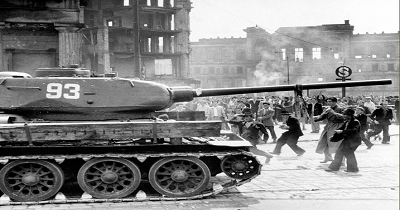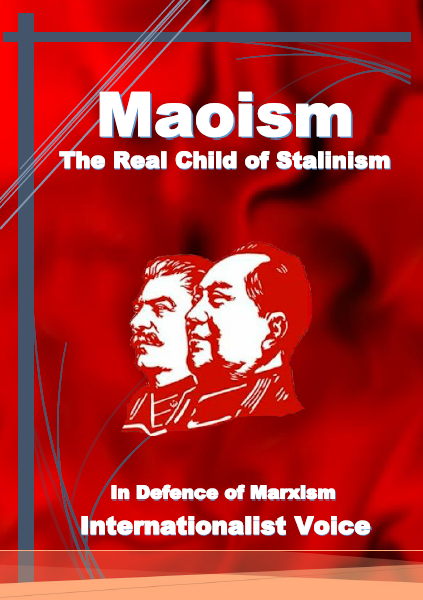The Working Class Is a Class of Migrants
A new wave of xenophobia and racism is spreading across the globe ‒ from Iran to Germany, from Britain to the United States, from Japan to other parts of the world. However, in two countries in particular ‒ Iran and the United States ‒ this phenomenon has taken on an especially savage and unrestrained form. Often accompanied by xenophobic propaganda and violence, this wave targets a section of the global working class ‒ those who are themselves victims of economic, social, and military crises. Capitalism, relying on tools such as the state, the police, the media, and official ideologues, seeks to deflect discontent caused by these crises onto “foreigners,” thereby obscuring the true source of these problems: the capitalist system itself.
In many countries, the repression of migrants has become an organised and institutionalised policy. In the United States, Donald Trump made the deportation of millions of migrants a central theme of his election campaign, and he has once again initiated large-scale expulsions under the banner of hardline anti-immigration rhetoric. In Iran, the government has launched a sweeping campaign to deport people of Afghan descent ‒ including Afghan migrants and asylum seekers ‒ branding them as “unauthorised foreigners.”
In Europe, countries such as France, Germany, Spain, Italy, and Greece have intensified the return and deportation of migrants. In Greece, reports have emerged of inhumane treatment, including the deliberate capsizing of migrant boats and lethal violence by the coastguard. In Turkey, evidence has surfaced of mass killings of asylum seekers and their burial in mass graves. The list of such manifestations of capitalist brutality is far too long to summarise in just a few sentences.
Xenophobia is rooted in the structure of class-based society and, with the emergence of nation-states and the rise of nationalist ideology ‒ both historical outcomes of the expansion of capitalism ‒ it has taken on contradictory and shifting forms. During periods when capitalism requires cheap labour, xenophobic rhetoric tends to subside, and migrants are accepted as a useful and necessary workforce. But in times of economic or social crisis, the ruling class deliberately fuels xenophobia by attributing society’s problems to migrant workers. Under such conditions, ethnic, racial, and national divisions become tools for sowing discord within the working class ‒ tools whose primary function is to deflect social anger and discontent away from its true source: the capitalist system.
The politics of xenophobia, supported by the media, official discourse, bourgeois ideologues, and politicians of the ruling establishment, is not only justified but continuously reproduced as an effective tool for sowing division within the global working class. Within this framework, migrants are often depicted as “barbarians” ‒ a threat to civilisation, civility, and security ‒ as if it were necessary to defend the existing civilised order against a “barbarian” onslaught. In this narrative, xenophobia is not an unintended mistake but a conscious and deliberate part of policies aimed at maintaining class domination. A striking example of this mindset can be found in the remarks of Josep Borrell, then EU High Representative for Foreign Affairs, on 13 October 2022 at the opening ceremony of the European Diplomatic Academy in Bruges. In that speech, he described Europe as a “garden” and the rest of the world as a “jungle”: a prosperous, free, beautiful, and democratic garden that must be protected against a threatening, barbaric jungle:
“Yes, Europe is a garden…Most of the rest of the world is a jungle, and the jungle could invade the garden…The gardeners have to go to the jungle. Europeans have to be much more engaged with the rest of the world. Otherwise, the rest of the world will invade us, by different ways and means.”[1]
Population displacement is a structural and inevitable phenomenon within the capitalist system ‒ a system that, unlike pre-capitalist formations, is inherently dependent on migration and the movement of labour. In the early stages of capitalist development, the migration of workers from rural areas to cities was a prerequisite for capital accumulation and the expansion of industrial production. However, these movements were not accompanied by improvements in workers’ living conditions; rather, they were consistently marked by intensified exploitation, job insecurity, and deteriorating standards of living.
In later stages ‒ particularly following the post–Second World War reconstruction ‒ large waves of migration were no longer merely a response to labour market demands. Instead, they became direct consequences of the destructive logic of global capitalism: war, poverty, famine, disease, environmental degradation, and political repression forced millions to leave their homes and homelands.
Nevertheless, it was migrant labour that played a vital role in the reconstruction of countries devastated by the Second World War. Today, too, a significant portion of the services and infrastructure in major cities ‒ such as Tehran, New York, London, Paris, and others ‒ rests on the shoulders of migrant workers, who themselves belong to some of the most marginalised and oppressed layers of the global working class. From elderly care in Europe to construction in the Middle East, without migrant labour, the wheels of many modern societies would come to a halt.
Following the recent tensions and war between Iran and Israel, the criminal bourgeoisie of the Islamic Republic has launched a coordinated and disgraceful campaign against a segment of the working class, accusing a number of citizens of Afghan origin of spying for Israel and collaborating with Mossad. This campaign ‒ accompanied by security-driven and racist propaganda ‒ has a clear objective: the expulsion of millions of people, many of whom belong to the working class. So far, hundreds of thousands have already been deported. In this context, several points must be addressed:
First, the disgraceful bourgeoisie of the Islamic Republic is attempting to portray Afghan-origin workers as a security threat by generalising individual faults or accusations to an entire social group. Yet the true source of the Islamic bourgeoisie’s security crises lies in the regime’s own corrupt and dysfunctional structure.
Second, clear and undeniable facts have shown that Mossad and other Western intelligence agencies have infiltrated the highest political, military, and security levels of the Islamic Republic[2]. What possible logic is there in believing that an ordinary worker would have access to the confidential meetings of senior officials or military commanders? Such information could only leak from within the structures of power ‒ not through an ordinary worker with no access to classified material.
Third, this scenario serves the interests of both the warmongering and oppressive regimes of Iran and Israel: the Islamic Republic, by accusing migrant workers, pretends that its security apparatus remains impregnable, while Israel ensures that its real agents remain anonymous and immune.
The Islamic bourgeoisie, by fuelling organised propaganda against a section of the working class of Afghan origin and inciting public opinion to participate in identifying and suppressing these workers, has effectively turned part of the population into an instrument of the repressive apparatus. This process is part of a larger project: sowing division within the working class and facilitating its easier and more intense exploitation.
The fight against the humiliating deportation of a section of the working class of Afghan origin is not a defence of a particular ethnicity or nationality; rather, it is a defence of our class identity and interests. Capitalism, by fuelling ethnic, racial, and national divisions, seeks to keep us scattered, weakened, and submissive. But despite all our differences, we belong to one class: the working class. Now is the time to stand united and shout: “Class against class!” and to defend our fellow workers against xenophobia ‒ not in the name of nationality, but in the name of our shared class destiny. Just as the Iranian working class has recorded heroic struggles throughout history, today it has a duty not to remain silent in the face of the humiliation and deportation of its sisters and brothers. Failure to respond seriously today will remain tomorrow as a shameful stain on the historical memory of this class.
The repressive approach adopted by the criminal bourgeoisie in power in Iran against migrants is being pursued with similar intensity and scale by the criminal bourgeoisie in the United States. Donald Trump had previously promised to carry out the “largest deportation operation in American history,” and he is now in the process of implementing it.
These policies target not only undocumented migrants but also many legal migrants and asylum seekers. Widespread detentions, the establishment of temporary camps, the deportation of hundreds of thousands, and the daily detention of thousands of migrants are all part of this vast project. At present, tens of thousands are held in detention awaiting deportation. The ultimate aim of these policies is to suppress a section of the working class: the very migrant and deprived labour force that bears the main burden of services, construction, and production.
Before anything else, we are sellers of labour power and members of a class subjected to exploitation, rather than carriers of ethnic, racial, or religious identities. In the face of the capitalist system’s efforts to divide and sow discord among workers by turning them into ethnic and religious minorities, it is our duty to consciously and unitedly rise up as a single class. This means defending our shared class interests and standing firm against racism and deceptive identity politics, whether from the right or left of capital.
Unfortunately, especially in the United States and to a lesser extent in Iran, some, by resorting to slogans of democracy or supporting bourgeois institutions, and by emphasising national or ethnic identities ‒ including in the US through the raising of flags from countries such as Mexico, Guatemala, El Salvador, and other Latin American nations ‒ fuel illusions that prevent the formation of a genuine, deep-rooted, class-based response from the proletariat.
The working class cannot remain indifferent to the repression and humiliation of migrant workers, nor can it hold them responsible for its own problems, as internationalism is the foundation for defending the collective interests of the entire working class. We emphasise the principle of proletarian internationalism: workers have no homeland and must unite against their common enemy, the capitalist system.
On the one hand, the low level of class struggle, and on the other, widespread racist propaganda, have created conditions in which the bourgeoisie seeks to portray class unity as impossible. However, workers ‒ especially at the height of class struggle ‒ have repeatedly demonstrated their ability to achieve a historic and glorious solidarity; a class-based and internationalist unity that the bourgeoisie fears above all else. It is this class and internationalist solidarity that can shake the foundations of the capitalist system.
Workers have no homeland!
Long live the class solidarity of workers!
Oppose bourgeois xenophobia against the working class!
F.A.
4 July 2025
Notes:
[2] The daughter of Major General Ali Shadmani, commander of the Khatam al-Anbiya Central Headquarters, recently stated that her father had no mobile phone or smart devices with him, his location changed every few hours, and security protocols were strictly observed. Nevertheless, during the war, he was targeted by Israel ‒ indicating the extensive intelligence Israel and its allies had regarding his movements.















